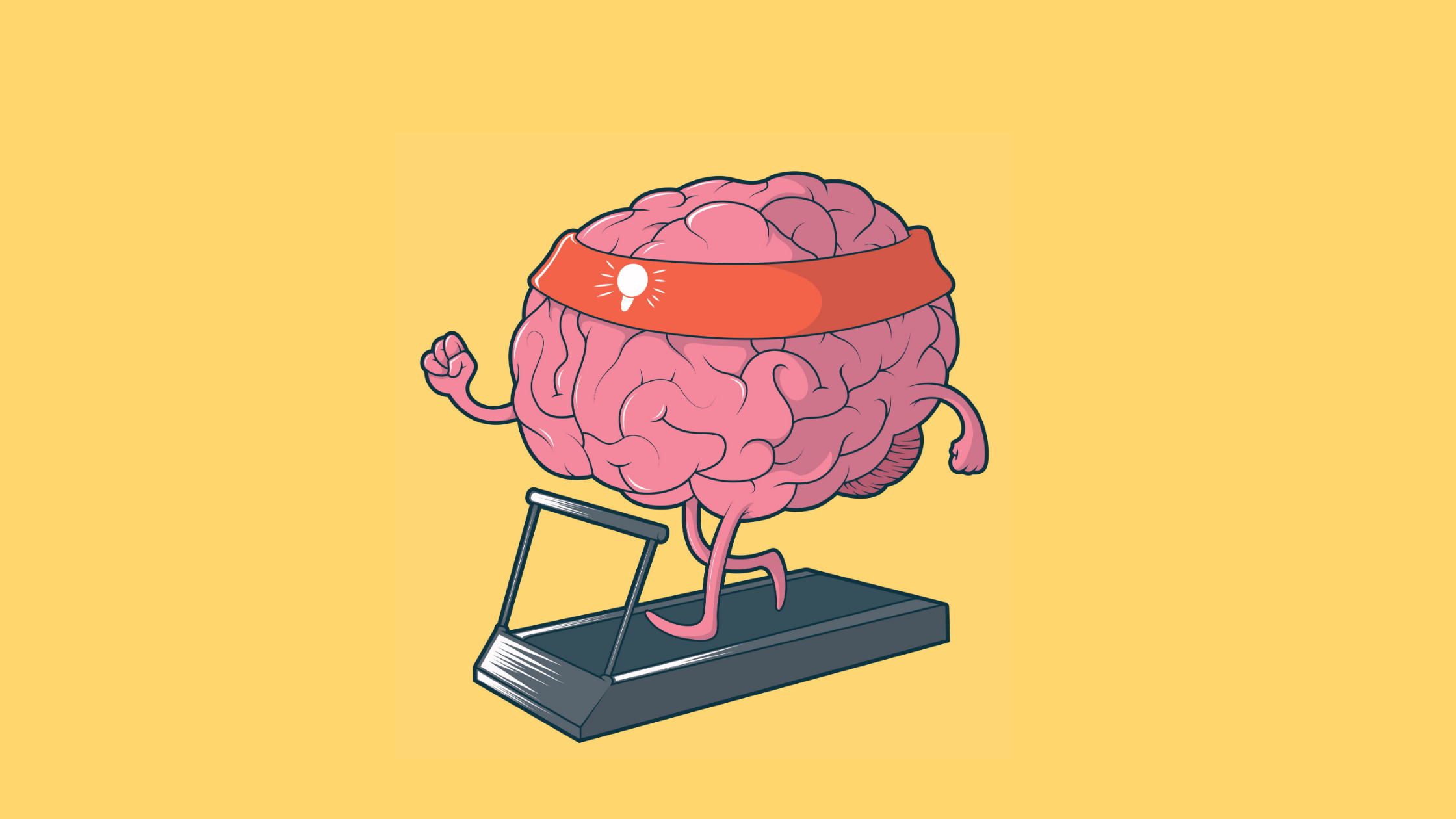How to relieve stress by switching your habits isn't super hard to do and can be a benefit for you.
Stress is a normal part of life, but it can be relieved in many ways. One way that works for many people is to switch your habits and find new activities that would not usually be accessible to you.
Overtime when dealing with stress, most people focus on a bottoms-up approach. They focus on physical activities like exercising to relieve stress before focusing on the role the brain plays.
However, the real answer to stress is a top to bottom approach which involves working on your brain first to reduce stress. This is called brain training and it leads to significant stress relief.
Your Brain and Stress
Why is brain training important to relieve stress? Because although external factors act as stress triggers, its source is in the brain.
The Amygdala is the part of the brain responsible for the fight or flight responses and emotions related to stressful situations.
When you’re afraid or threatened, the amygdala releases stress hormones that causes your body to react in a certain way.
Often, when fight or flight mode is activated it produces overreactions that are impulsive and irrational.
Today, most people especially entrepreneurs are repeatedly exposed to high stress situations that trigger these stress hormones. As a result, they’ve nurtured their brain to respond this way even in low-threat conditions.
Therefore, training your brain helps you to regulate your response and rewire your brain. Instead of becoming stressed and anxious, you react in a more focused, calm, relaxed and rational manner.
What Are Your Stress Triggers?
Take a step back to examine your life. As an entrepreneur, what easily stresses you out? Is it the overwhelming responsibilities you have? An uncompleted to-do list? Worries about life and work balance? Unforeseen circumstances? Health concerns because you’re overworking yourself? Or meeting tight deadlines?
Sometimes stress comes from simples things like decision making, paying the bills, limited access to capital for your business, making a presentation for your brand, handling difficult clients or the risk of failure. Whatever it is, you’ll agree that it’s unhealthy and bad for business.
The answer to knowing how to relieve stress isn’t running away from your life. Certainly, no matter how hard you try, you can’t avoid stress.
However, you can manage and reduce stress by rewiring the way your brain reacts to these same situations. In doing so, you’re bound to boost your productivity and well-being.
The Best Way to Train Your Brain

The best way to retrain your brain for stress relief is by shifting your habits. Habits are subconscious behaviours that have become a part of you through repetition.
These behaviours no longer need logical effort because they have created pathways and patterns in your brain. For example, as a child you learnt how to ride a bike.
While learning, you had to remember how to pedal and keep your balance. But as you repeated the activity, it became part of you and required little thought. Why? Because you hardwired that activity or habit into your brain.
Similarly, you have unconsciously hardwired some stress-causing habits into your daily routine. So to experience relief, you need to deliberately replace those habits with new relaxing ones.
For instance, a habit of going to bed late and getting little sleep will set you up for chronic stress. To know how to relieve stress for this - You need to stop the patterns created by former habits and the stress will reduce.
Now, shifting habits doesn’t have to be a major change. It can be adopting new exercises, picking up a relaxing hobby, or exposing yourself to a new environment.
Click to download
your free 5-day challenge guide
How to Make Shifts in Your Existing Habits
The patterns habits create in your brain are called neurological pathways. Making significant shifts in your habits creates new pathways. This helps you embrace lifestyle change, increase productivity, relieve stress, and become a better entrepreneur.
If you’re struggling to change your lifestyle and manage stress, this is the best approach for you. It entails doing new activities to help manage stress and train your brain. For example, if your job keeps you behind a desk all day, learn to take long works.
It’ll disrupt normal stress patterns in your brain and help you relax. I invented the five-day switch-your-habit challenge. The essence of this challenge is to help you gain mastery of lifestyle modification.
Day 1: Pick a quote or affirmations
Affirmations are an effective tool to relieve stress. Affirmations shift your mind from your pain, stress and struggle and give you a picture of comfort, peace and hope. Most circumstances that shifts your brain into flight or fight mode aren’t real.
They might just be fears or imaginary threats. Well, affirmations help to create a state of safety, confidence and calm. Here are five affirmations that may help you:
- I let go of all my worries and anxieties.
- I have the inner and physical strength to meet my deadlines.
- I have peace and calmness.
- My tension and pressure is melting away.
- Happiness is centered in my life, and I practice happiness always.
Day 2: Write one keyword that lights you up each day
I am an ardent advocate of affirmations and keywords. I encourage you to write positive things about yourself and keep them in visible places. Many keywords describe you.
Some keywords resonate with your personality. Today’s challenge is to write one keyword that lights you up the most and confess it all through the day. Whenever you find yourself getting stressed out by overwhelming thoughts, look at the key word.
Day 3: Change your route
I want you to try going to work using another route. Are you wondering what your route has got to do with stress management? If you are just like me, I love exploring places in my city, travelling, and they have always been a helpful stress relief method.
Remember that this concept entails trying new things. Changing your route helps you enjoy a unique view of things and learn new things. Ensure that you are doing this in a fun way.
Take pictures, write a recent Facebook post, and talk to new people about your route change. Just explore places.
More Resources
5-Day Habit Switch for Stress Relief
5 Ways You Can Prioritise Your Time To Reduce Stress
10 Ways to Stay Calm Under Pressure
Day 4: Try a new meal
Have you ever tasted a meal and felt like your energy was restored? Foods reduce stress in various ways. Foods like oatmeal, or any other food rich in vitamins and minerals, contain chemicals that calm the brain.
Trying a new meal rich in vitamins will help you reduce stress hormones and cut down cortisol levels. There are several foods that you can try out. Examples include soybeans, salmon fish, fatty fish, black tea, and vegetables etc.
There are also foods that you must avoid, such as complex foods. If you are a junk eater, junk eating is an unhealthy habit.
Day 5: Listen to a new genre of music
Listening to music is a stress relief method, and it is effective. But, I want you to listen to a new genre.
Your brain retains knowledge and is often conscious of those things that you usually do. Hence, listening to a new music genre is a way of getting your brain to rewire and see things differently.
Final thought on how to relieve stress
Yes, many physical activities can help you revitalise your physical and mental health after a stressful week. But training your brain is your best bet if you desire a stress free lifestyle.
It’s simply teaching your brain to react to situations differently by changing ingrained habits that are linked to stress triggers in your daily routine.
Never forget that your brain does not act independently; it works as a result of actions you engage in. Always engage in daily activities that will help you train your brain to relax and, in turn, relieve stress.
So, Try the 5-day habit switch challenge to see how stress-relieving activity can be as easy as swapping your daily habits.
More Resources
Making health habitual: the psychology of ‘habit-formation’ and general practice
Habit Formation and Behaviour Change




